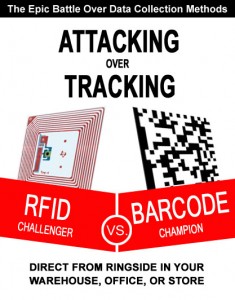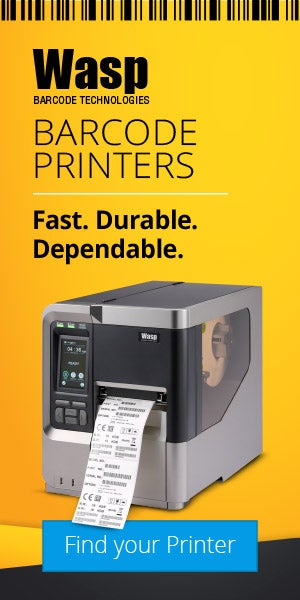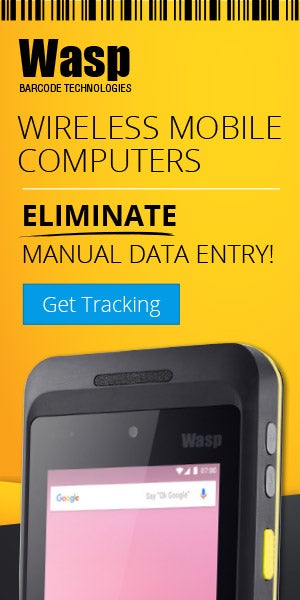Wasp Barcode Technologies: The Barcode Solution People
RFID vs. Barcodes
We are in the midst of an epic battle: barcodes vs. RFID, the underdog vs. the favorite, dare I say, good vs. evil. Well, maybe not that kind of a battle, but there are a lot of heated discussions about barcoding and RFID.

It's no "Thrilla in Manilla", but there are heated debates over the best data collection technology and if RFID will eventually replace barcodes altogether.
In reality, we don’t see barcodes disappearing or going away, but RFID and barcodes being used in combination. Barcodes provide that tactile feel and confirmation that the item has been looked at and information has been captured. RFID collects the information more quickly without having to physically touch the item and search for a barcode.
A great example of this is a retail item being checked out at a register. The employee will scan the item’s barcode with a barcode scanner and the serial number is captured automatically with a RFID reader.
There are now some very innovative solutions that are happening with RFID. The projects that we are primarily working on are for asset tracking. A good example would be a business that has thousands of high dollar assets and a scheduled audit occurs. In these applications, we see both active and passive RFID being used.
If real time visibility is an absolute must, active RFID is used. The active tags have a battery inside of them and are constantly sending out a signal that a reader listens to and interprets. On active tags, you can use additional features, like temperature, motion, and theft monitoring. In a passive solution, typically a hand held reader is used. The handheld reader scans the passive tags and collects the data.
What has helped RFID start to really grow and be adopted is the use by large retail organizations. They use RFID to conduct inventory counts in a matter of hours instead of days. This allows inventory counts to be done several times a week, which means inventory is more accurate and up to date, and that leads to more sales.
So in order to not pick a side, the winner is both barcoding and RFID. Both technologies serve and will continue to serve a unique need for tracking information. What do you think? Will barcodes go away and RFID take over?
 It's no "Thrilla in Manilla", but there are heated debates over the best data collection technology and if RFID will eventually replace barcodes altogether.
It's no "Thrilla in Manilla", but there are heated debates over the best data collection technology and if RFID will eventually replace barcodes altogether.

